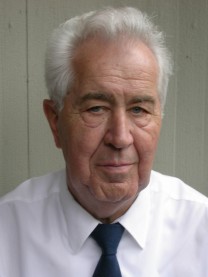Prof. Dr. em Meinhard Schuster was born in Offenbach/Main in 1930. At an early age he developed an interest in South America (e.g., ancient indigenous cultures) and eventually started to take courses in Spanish and Portuguese. When he was seventeen years old, Schuster visited the Frobenius-Institute in nearby Frankfurt/Main for the first time.
In 1948 Schuster finished school and took up his studies at the Johann Wolfgang Goethe-University in Frankfurt. Anthropology was his major subject at the Frobenius-Institute, Art History and Archaeology were his minor subjects. Eventually he changed from Archaeology to Prehistory.
At the Frobenius-Institute A.E. Jensen, Helmut Petri and Hermann Niggemeyer were among his teachers. Schuster did his first field research in 1954 as the student assistant of Otto Zerries. For eighteen months they lived with the Waika in southern Venezuala, where they collected ethnographic material.
Schuster graduated in 1956. The following two years he evaluated the data collected in Venezuela and eventually took up an assistant position at the Frobenius-Institute. Due to a growing interest in Papa New Guinea, Schuster did a series of field researches in the Sepik region between 1961 and 1967.
In 1965 Schuster took up an assistant position at the Anthropological Museum (now: Museum of Cultures) in Basel, where he eventually held a full position at the department for Oceania. In 1968 Schuster completed his habilitation thesis and became deputy chairman of the museum for a year.
In 1970 Schuster not only became head chairman of the museum but also ordinary of the Ethnological Seminar at the University of Basel, where he lectured until his retirement in 2000.
Short Portrait: Meinhard Schuster

Meinhard Schuster
 further information
further information

